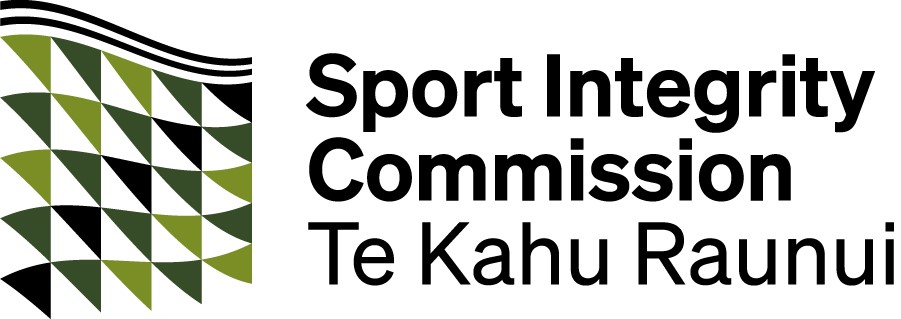Anti-doping

Cycling New Zealand and its Member Organisations are committed to clean, fair sport. We believe in protecting the health of our athletes, the integrity of our sport and the spirit of clean competition in which the best succeed. We work in collaboration with the Sport Integrity Commission Te Kahu Raunui (the Commission – formerly Drug Free Sport New Zealand), our national anti-doping agency, to:
- promote a culture of clean sport;
- educate members on anti-doping rules, rights and responsibilities;
- facilitate testing;
- report doping and suspicious activity, and;
- support athletes to compete clean.
Got questions?
You can contact the Commission at any time for clean sport support, information, education or resources.
Phone: 0800 378 437
Email info@sportintegrity.nz
Website: sportintegrity.nz
We have adopted New Zealand’s Sports Anti-Doping Rules. The rules apply to all Cycling New Zealand members, no matter your role or level of play.
The Rules cover much more than just testing positive – they also ban things like purchasing, possessing or distributing banned substances and evading testing.
If you break the Rules– even by accident – you risk a sanction that can include a ban from all sport and disqualification of your results.
Read the Sports Anti-Doping Rules
The most important thing anyone can do to protect themselves and their sport from doping is to complete anti-doping education.
The Commission offers comprehensive free anti-doping education and resources on its website. Whether you’re new to anti-doping, an experienced athlete or part of an athlete’s support team, there is an education option for you.
Some substances and methods are banned in sport. Each year, the World Anti-Doping Agency publishes a list of all those substances and methods in the WADA Prohibited List. Substances can be included on the list if they meet any two of the following criteria:
- It has the potential to enhance sporting performance
- It presents an actual or potential health risk to the athlete
- It violates the spirit of sport
Please be aware that the UCI also has a No Needle Policy, more details are available here.
As of 1 March 2019, the UCI banned the use of Tramadol in competition for all cycling codes. For more information, please visit the following links.
Supplements are a risk for all athletes. Neither the Commission nor WADA approve any supplements because of this risk. Athletes can and do test positive because of contaminated supplements.
Nevertheless, many athletes choose to use supplements or are on a supplement programme. If that’s you, it’s important to make an informed decision. The Commission’s Supplement Decision-Making Guide shows you ways you can minimise – but not eliminate – supplement risk.
Even common medications can contain banned substances. That’s why it’s important that you check every medication for banned substances before you take it.
Global DRO is an online tool that can tell you if your medication contains banned ingredients, has conditions for its use, or is not banned in sport.
Athletes are 100% responsible for any substance found in their sample. If you’re an athlete, we encourage you to be careful with anything you put in or on your body.
A Therapeutic Use Exemption (TUE) allows you, without breaking the Rules, to take a medication containing a banned substance if you need to do so for medical reasons.
Some athletes must apply for their TUE in advance, before they begin using any prohibited medications or methods. Other athletes can apply retroactively.
Testing is an important way of deterring and detecting doping in sport. As an athlete, you should be prepared to be tested at any time. It may happen in- or out-of-competition. You may be asked for a urine sample, blood sample or both.
If you fail to complete a test when notified, you are at risk of an anti-doping sanction.
Testing can be nerve-wracking, especially if it’s your first time. It’s a good idea to learn about the process in advance so you know what to expect when it’s your turn.
The Athlete Whereabouts programme is used worldwide to make sure athletes can be located for testing. Athletes on a testing pool must update their Whereabouts every quarter to protect the integrity of sport and to stay within the Sports Anti-Doping Rules.
The Athletes’ Anti-Doping Rights Act protects an athlete’s fundamental right to participate in clean sport. It promotes health, fairness and equal opportunity for all athletes worldwide.
Speak Out is a way for anyone in sport to report doping concerns in confidence. You don’t need the full story. And get in touch even if it seems minor – they use every piece of information they receive.
Share doping concerns by phone at 0800 378 437.
Share doping concerns online using the anonymous web form
If you have any questions please contact the Sport Integrity Commission on 0800 DRUGFREE (378 437)
Cycling New Zealand’s point of contact for anti-doping matters is High Performance Programmes Administrator, Rebekah Cullinane – email: rebekah@cnz.kiwi phone: 027 962 1919.
